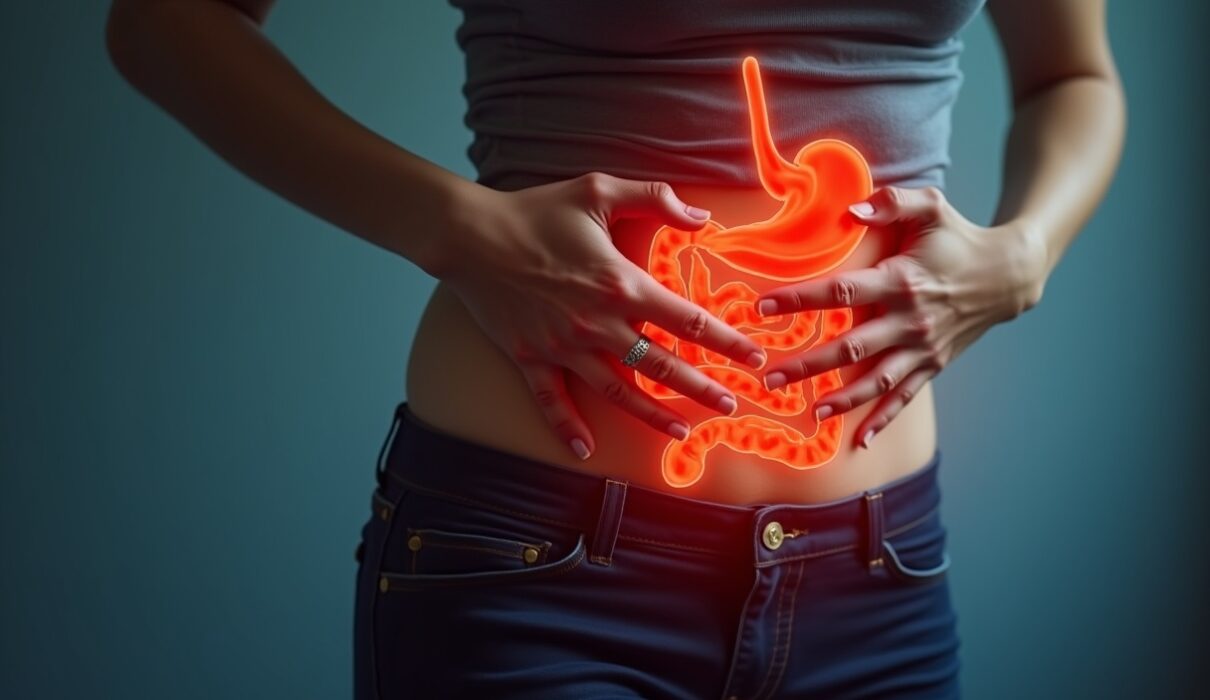Gut Health and Its Impact on Overall Wellness
The digestive system is crucial to human health, functioning even during sleep. Recent research has identified the gut as a “second brain,” influencing emotions and mental well-being. Several factors affect gut health, including stress, diet, sleep patterns, and medications.
Gut microbiome imbalance occurs when harmful bacteria outnumber beneficial ones. This imbalance can manifest in various ways:
- Digestive discomfort
- Food sensitivities
- Skin issues
- Mood changes
- Bloating
- Cognitive difficulties
- Weakened immune system
Digestive Discomfort
Persistent stomach discomfort or intestinal gurgling may indicate gut inflammation. Healthy digestive systems process food and eliminate waste efficiently. Individuals experiencing frequent heartburn, constipation, diarrhea, or bloating should monitor their symptoms and note potential triggers, including food intake and stress levels.
Food Sensitivities
Sudden food intolerances or allergic reactions can develop due to poor gut health. Food allergies involve immune responses to specific foods, causing symptoms like breathing difficulties, skin rashes, or digestive issues. Intolerances occur when the body struggles to break down certain foods, leading to gas, nausea, or diarrhea. Some evidence suggests a connection between food allergies and gut health.
Skin Issues
Skin conditions often reflect diet and lifestyle choices. Hormonal changes and certain foods can trigger outbreaks. Stimulants like alcohol, sugar, and gluten may cause pimples or inflamed cysts on the face or body. These trigger foods can inflame the gut lining and impair digestive function.
Mood Changes
Diet significantly influences mood due to the body’s ability to digest and absorb essential nutrients. Consuming processed foods, stimulants, and excessive sugar can lead to lethargy, brain fog, constipation, irritability, and exhaustion. Chronic discomfort after eating may contribute to depression and anger, impacting overall quality of life. Identifying and eliminating trigger foods can improve mood and well-being.
Bloating
Bloating often occurs after consuming certain foods that are difficult to digest, resulting in gas production. Hormonal changes can also cause gas and digestive system spasms. The bloating sensation may resemble overeating, even after consuming small portions. Stress can exacerbate bloating and discomfort.
Cognitive Difficulties
Daily diet plays a significant role in cognitive function and alertness. Certain foods, such as dairy, peanuts, and MSG, can irritate the digestive tract, causing inflammation and discomfort. This inflammation may lead to poor nutrient absorption and increased cortisol levels, putting the nervous system under stress and further exacerbating inflammation.
Weakened Immune System
Frequent colds, infections, and flu episodes throughout the year may indicate gut health issues. Antibiotic use can disrupt gut bacteria balance, requiring months of repair to restore equilibrium. An imbalanced gut microbiome places significant stress on the immune system, increasing susceptibility to viruses and bacteria. Consuming processed foods further compounds this problematic environment.
To improve gut health and overall well-being, consider the following strategies:
- Identify trigger foods
- Reduce stress levels
- Increase fiber intake
- Stay hydrated
- Incorporate probiotics into the diet
- Limit processed food consumption
- Exercise regularly
- Get adequate sleep
By addressing gut health concerns, individuals may experience improved digestion, enhanced mood, better skin health, increased energy levels, and a stronger immune system. Paying attention to the body’s signals and making necessary lifestyle adjustments to support optimal gut function is essential.

Common Questions About Gut Inflammation
What are the signs of an irritated digestive system?
An irritated digestive system can show itself in many ways. Stomach pain, bloating, and gas are common issues. Some people may have diarrhea or constipation. Feeling tired all the time or having skin problems can also point to gut troubles. Pay attention to these signs – they may mean your gut needs help.
Which foods can make gut problems worse?
Some foods can upset an already troubled gut. Sugary treats and processed snacks are not good choices. Dairy products bother some people’s stomachs. Spicy foods may cause pain for others. Alcohol and caffeine can also be hard on the gut. It’s best to avoid these if you think your digestive system is irritated.
How can you help heal your gut?
Healing your gut takes time and care. Eating more fruits, veggies, and whole grains is a good start. Drinking plenty of water helps too. Some people find probiotics useful. Getting enough sleep and managing stress are also key. Gentle exercise like walking can boost gut health. Be patient – healing happens slowly.
What steps reduce bad bacteria in the gut?
Cutting down on bad gut bacteria takes work. Here are some steps that can help:
- Eat more fibre-rich foods
- Try fermented foods like yogurt or sauerkraut
- Limit sugar and processed foods
- Drink plenty of water
- Consider taking probiotics
- Avoid unnecessary antibiotics
What shows your gut health is getting better?
Better gut health has many signs. You may notice:
- Less stomach pain or bloating
- More regular bowel movements
- Improved energy levels
- Clearer skin
- Fewer food sensitivities
- Better mood and focus
These changes often happen slowly. Keep track of how you feel over time.
What is a gut ‘reset’ and why do it?
A gut ‘reset’ means giving your digestive system a break. It often involves changing your diet for a short time. You might cut out certain foods and add others. The goal is to reduce inflammation and help good bacteria grow. This can lead to better digestion and overall health. A reset is not a quick fix, but it can be a good start to improving gut health.
Download your low-carb, high-protein dinner recipe book with two bonuses here.
I appreciate your support.
Feel free to visit my website at www.angedim.com/recipes for healthy recipes to help heal your body.
You can also visit my YouTube Channel for more recipes & health advice here: https://bit.ly/4aN7m1p
